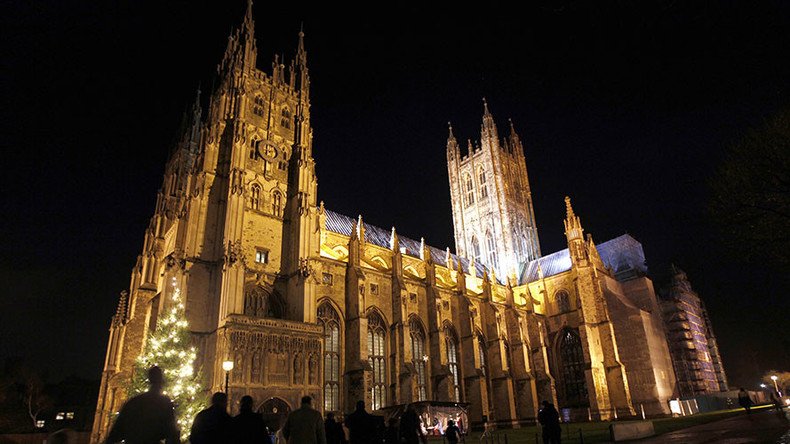Christianity in Britain declining as Islam more popular, report shows

Modern Britain is no longer a Christian country, a report by the Commission on Religion and Belief in Public Life concludes. It calls on institutions to adapt to the nation’s increasingly multi-faith and non-religious makeup.
The commission, set up by the Woolf Institute and chaired by former high court judge Elizabeth Butler-Sloss, is a leading think tank studying relations between Christian, Jewish and Muslim communities.
The massive decline in churchgoing and the rise of Islam means a “new settlement” is needed for religion in the UK, the independent study finds.
Two year inquiry concludes Britain is no longer a Christian country. The Queen, as head of the Church of England, may disagree with that
— Andrew Pierce (@toryboypierce) December 7, 2015The House of Lords, which includes a number of Church of England (CoE) bishops, should also feature imams, rabbis and other non-Christian clerics to give more official influence to other faith groups, the report suggests.
It added that acts of worship in school assemblies should be abolished and replaced with “time for reflection.”
“Three striking trends in recent decades have revolutionized the landscape on which religion and belief in Britain meet and interact,” the report said.
“The first is the increase in the number of people with non-religious beliefs and identities. The second is the decline in Christian affiliation, belief and practice and within this decline a shift in Christian affiliation that has meant that Anglicans no longer comprise a majority of Christians.
“The third is the increase in the number of people who have a religious affiliation but who are not Christian.”
The report was strongly condemned by Cabinet ministers and the Church of England, who said it was a “sad waste.”
In a statement, a spokesman for CoE said: “The report is dominated by the old-fashioned view that traditional religion is declining in importance and that non-adherence to a religion is the same as humanism or secularism.”
A source close to Education Secretary Nicky Morgan described the report’s recommendations on faith schools as “ridiculous.”
“Nicky is one of the biggest champions of faith schools and anyone who thinks she is going to pay attention to these ridiculous recommendations is sorely misguided,” the source told the Telegraph.
Priest and commentator @giles_fraser on Christianity in British life #bbcdppic.twitter.com/p3JmdNZAcz
— DailySunday Politics (@daily_politics) December 7, 2015In his Easter message earlier this year, Prime Minister David Cameron insisted that the UK is “still a Christian country.”
He praised Christians for living out their religious faith in schools, and took credit for investing “tens of millions to repair churches.”
However, shortly after his speech, YouGov released a poll which found 62 percent of Britons describe themselves as “not religious.”
Some 68 percent of those surveyed said religion is “not important” to their life.
According to the Pew Research Centre, the proportion of the British population identifying itself as Christian is expected to fall from 64 percent to 45 percent by 2050, while the proportion of Muslims is predicted to rise from 5 percent to 11 percent.












